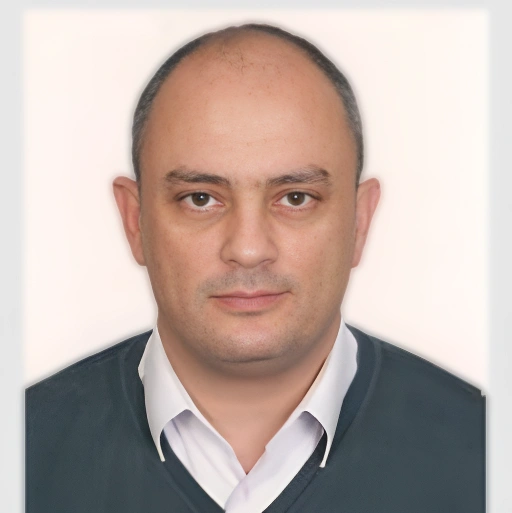Generation of Chimeric ''ABS Nanohemostat'' Complex and Comparing Its Histomorphological In Vivo Effects to the Traditional Ankaferd Hemostat in Controlled Experimental Partial Nephrectomy Model
Yazarlar (12)

Hacettepe Üniversitesi, Türkiye

Çanakkale Onsekiz Mart Üniversitesi, Türkiye

Ihsan Dogramaci Bilkent University, Türkiye

Ihsan Dogramaci Bilkent University, Türkiye

İhsan Doğramacı Bilkent Üniversitesi, Türkiye

Ihsan Dogramaci Bilkent University, Türkiye

Ankara Numune Training & Research Hospital, Türkiye

Turkiye Yuksek Balsas Training & Res Hosp, Türkiye
Doç. Dr. Mümtaz DADALI
Kırşehir Ahi Evran Üniversitesi, Türkiye

Fatih University, Türkiye

Abant İzzet Baysal Üniversitesi, Türkiye

Hacettepe Üniversitesi, Türkiye
| Makale Türü |
|
||
| Dergi Adı | INTERNATIONAL JOURNAL OF BIOMATERIALS | ||
| Dergi ISSN | 1687-8787 Wos Dergi Scopus Dergi | ||
| Dergi Tarandığı Indeksler | PubMed, Scopus, Emerging Sources Citation, IndWeb of Scienceex | ||
| Makale Dili | İngilizce | Basım Tarihi | 01-2013 |
| Cilt / Sayı / Sayfa | 2013 / 0 / – | DOI | 10.1155/2013/949460 |
| Makale Linki | http://dx.doi.org/10.1155/2013/949460 | ||
| Özet |
| Purpose. Using the classical Ankaferd Blood Stopper (ABS) solution to create active hemostasis during partial nephrectomy (PN) may not be so effective due to insufficient contact surface between the ABS hemostatic liquid agent and the bleeding area. In order to broaden the contact surface, we generated a chimeric hemostatic agent, ABS nanohemostat, via combining a self-assembling peptide amphiphile molecule with the traditional Ankaferd hemostat. Materials and Methods. In order to generate ABS nanohemostat, a positively charged Peptide Amphiphile (PA) molecule was synthesized by using solid phase peptide synthesis. For animal experiments, 24 Wistar rats were divided into the following 4 groups: Group 1: control; Group 2: conventional PN with only 0.5 ml Ankaferd hemostat; Group 3: conventional PN with ABS + peptide gel; Group 4: conventional PN with only 0.5 ml peptide solution. Results. Mean warm ischemia times (WITs) were 232.8 +/- 56.3, 65.6 +/- 11.4, 75.5 +/- 17.2, and 58. 1 +/- 17.6 seconds in Group 1 to Group 4, respectively. Fibrosis was not different among the groups, while inflammation was detected to be significantly different in G3 and G4. Conclusions. ABS nanohemostat has comparable hemostatic efficacy to the traditional Ankaferd hemostat in the partial nephrectomy experimental model. Elucidation of the cellular and tissue effects of this chimeric compound may establish a catalytic spark and open new avenues for novel experimental and clinical studies in the battlefield of hemostasis. |
| Anahtar Kelimeler |

